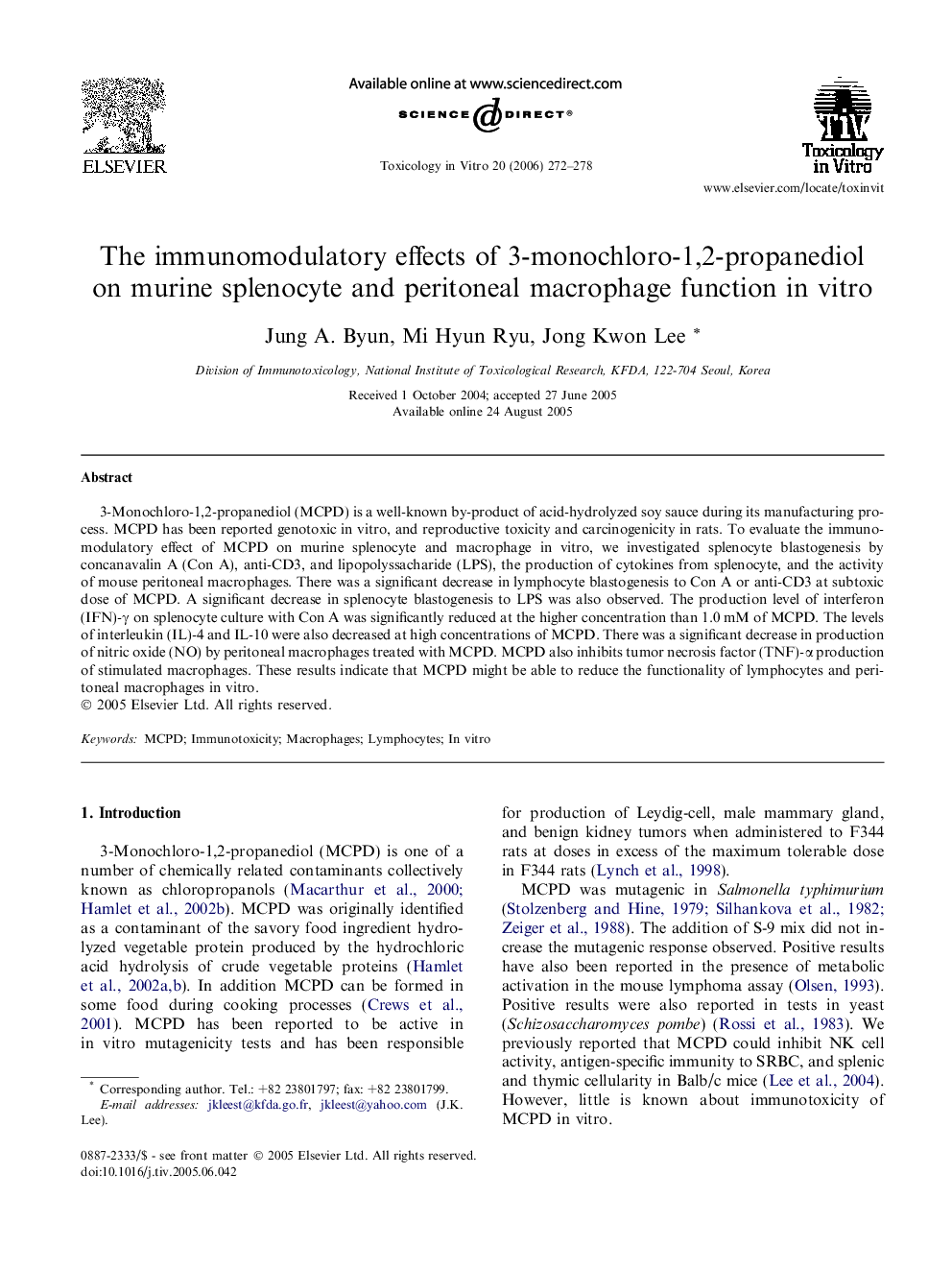| Article ID | Journal | Published Year | Pages | File Type |
|---|---|---|---|---|
| 2603899 | Toxicology in Vitro | 2006 | 7 Pages |
3-Monochloro-1,2-propanediol (MCPD) is a well-known by-product of acid-hydrolyzed soy sauce during its manufacturing process. MCPD has been reported genotoxic in vitro, and reproductive toxicity and carcinogenicity in rats. To evaluate the immunomodulatory effect of MCPD on murine splenocyte and macrophage in vitro, we investigated splenocyte blastogenesis by concanavalin A (Con A), anti-CD3, and lipopolyssacharide (LPS), the production of cytokines from splenocyte, and the activity of mouse peritoneal macrophages. There was a significant decrease in lymphocyte blastogenesis to Con A or anti-CD3 at subtoxic dose of MCPD. A significant decrease in splenocyte blastogenesis to LPS was also observed. The production level of interferon (IFN)-γ on splenocyte culture with Con A was significantly reduced at the higher concentration than 1.0 mM of MCPD. The levels of interleukin (IL)-4 and IL-10 were also decreased at high concentrations of MCPD. There was a significant decrease in production of nitric oxide (NO) by peritoneal macrophages treated with MCPD. MCPD also inhibits tumor necrosis factor (TNF)-α production of stimulated macrophages. These results indicate that MCPD might be able to reduce the functionality of lymphocytes and peritoneal macrophages in vitro.
